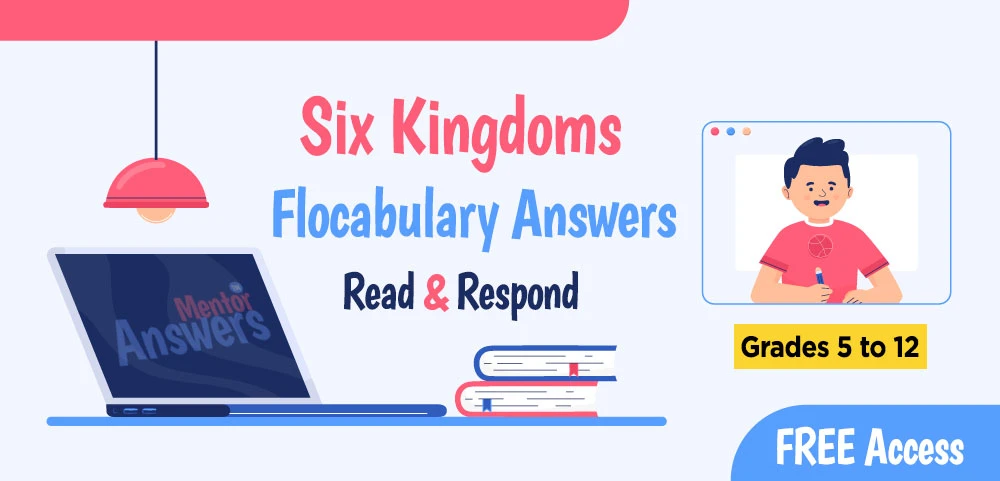Are you looking for a reliable source of answers for Six Kingdoms Flocabulary Quiz, Read & Respond? You’ve come to the right place!
We have a team of teachers who have checked and verified the correct answers for all the questions. You can trust our expertise and save time by using our answers key.
Six Kingdoms Flocabulary Quiz Answers Key
- Animals, Plants, Vertebrates, Invertebrates, Viruses, Fungi
- Bacteria, Amoeba, Algae, Archaea, Protists, Nuclei
- Archaea, Bacteria, Protists, Animals, Plants, Fungi
- Archaea, Bacteria, Animals, Plants, Proteins, Fungi
- Archaea
- Protista
- Bacteria
- Fungi
- True
- False
- Fungi
- Archaea
- Bacteria
- Plants
- multi-cellular
- has a nervous system
- uses photosynthesis to produce food
- can move from place to place
- True
- False
- Cell type, how they create energy, number of cells they have
- Cell type, if they’re living or dead, the number of organs they have
- How they create energy, how many years they live, how big they are
- The number of cells they have, the number of years they live, the number of offspring they produce
- 1 billion
- 3 billion
- 500,000
- 5,000
- Fungi
- Bacteria
- Archaea
- Plants
Six Kingdoms Flocabulary Read & Respond Answers
Expand your knowledge by exploring the Read & Respond answers related to the topic of our Subject:
- Canis familiaris, a pet dog/li>
- Malus pumila, an apple tree
- Escherichia coli, a coliform bacterium
- Flammulina velutipes, an enoki mushroom
- Protista
- Archaebacteria
- Fungi
- Eubacteria
- Mycoplasma pneumoniae, a single-celled bacterium without a nucleus that causes pneumonia
- Euglena spirogyra, a single-celled algae with a nucleus and flagella, or flippers, that help it move around
- Geotrichum candidum, a complex, multicellular fungus used to make cheese.
- Apodemus sylvaticus, a complex, multicellular creature known as a wood mouse.
- Some fungi can be used to make medicines.
- Fungi absorb nutrients from the things around them.
- Kingdom Fungi includes trees and vegetables.
- Fungi are important for their decomposing functions.
- Protista
- Plantae
- Animalia
- Fungi
Are you interested in delving into additional subjects and Lessons related to Flocabulary? Check Here To Get All Flocabulary Answers Key.
If you have any questions or need more answers key for your favorite subject, please leave a comment below or contact us through our website. We would love to hear from you and assist you in your learning journey.

